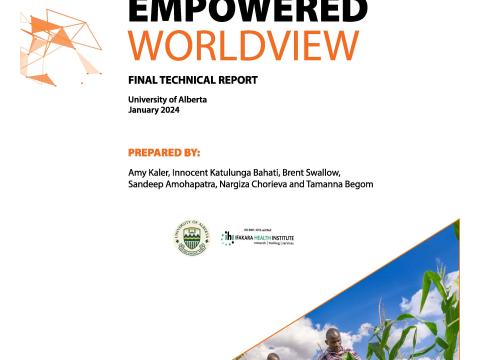Empowered Worldview Project Model (EWV)
Empowered Worldview Goal: Empower and mobilize individuals, groups and communities’ gifts, talents, knowledge, resources, and capacities (spiritual, social, physical and economic) to drive social change for sustainable child well-being.
Empowered Worldview is a biblically-based enabling project model that can lead to deeper and more sustainable changes in child well-being when combined with other project models. EWV is a behavior change model that seeks to address dependency mindsets and promote individual empowerment among people living in poverty. The EWV curriculum uses Biblical principles to engage individuals on issues of identity, self-esteem, hope, and vision for the future. It has been shown to have a positive impact on an individual’s level of empowerment, increasing their ability to become agents of change within their own lives, their families and communities.
Sharing the Empowered Worldview Experience
The Empowered Worldview Curriculum
This curriculum uses the following areas and mobilize individuals, groups and communities’ gifts, talents, knowledge, resources, and capacities (spiritual, social, physical and economic) to drive social change for sustainable child well-being.
-
IDENTITY: Participants gain a new view of their identity and value as they learn they are created for a purpose. This frees them from fear and superstition, enabling them to make bolder choices unencumbered by harmful traditions and reliance on aid agencies.
-
VISION: Participants learn God’s vision for communities to live in harmony. This encourages them to create a new future in which they benefit from the fruits of their labors and have the freedom to act in their communities to achieve this future.
-
COMPASSION: Participants learn the religious basis for caring for those in need and learn to develop action plans for addressing injustices in their communities.
-
RELATIONSHIPS: Participants see the importance of building relationships with people of different values and lifestyles, working together to collectively improve their futures.
-
FAITH IN ACTION: Participants are challenged to become more courageous, believing in their purpose and potential to creatively make use of all resources available to improve the lives of their families.
